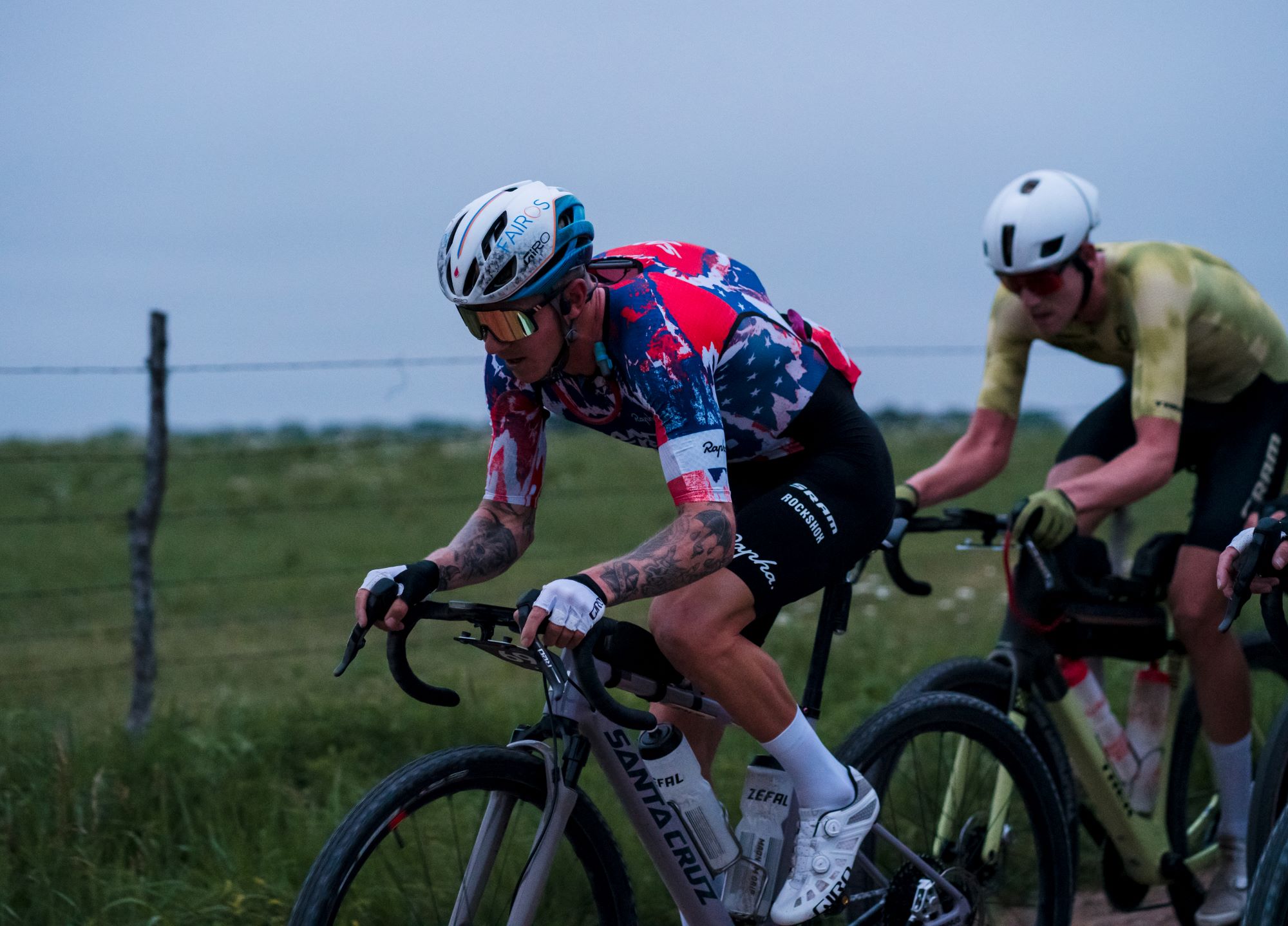
It is safe to say that if an American wins either of the elite UCI Gravel World Championship races this weekend, it would be a big surprise. Lauren Stephens is the likeliest contender but given the depth of WorldTour talent in the field, it seems like the lower steps of the podium is the upper limit of where she could finish. On the men’s side, a top 10 seems like it would be the high water mark.
Yet gravel is America’s invention, isn’t it? It's certainly the biggest driver of the domestic race scene and its top riders are making six-figure salaries exclusively racing off-road. But an American rider has yet to win the gravel rainbow jersey. So why are many of the biggest names in the gravel scene not even going to be on the start line of what the UCI has deemed the pinnacle of the sport? And why does that matter?
Keegan Swenson is chief among the absentees as he has been the standout gravel rider in the sport's rise, but he's not the only one. Other standouts like Alexis Skarda, Lauren de Crescenzo and Russel Finsterwald all qualified for Worlds and could have contributed to a winning effort yet they are also skipping the trip.
The possibility to see the best road racers square off against the best professional gravel racers has become more of a B-level world championships in which WorldTour road racers get a second stab at a rainbow jersey.
Come this weekend, all those who view gravel with a side-eye will be vindicated when the winners of the rainbow jerseys, which they will likely only ever wear in training, will probably go to riders who didn’t succeed in Zurich. And come Monday, those people who are invested in the gravel world will be back to trying to prove that gravel is indeed a professional sport, and not just because world-class road races can’t hack it in the United States.
The issue of the U.S. not sending its top talent to the UCI Gravel World Championships can be understood through the concept of a prisoner’s dilemma. In this scenario, individuals face a choice: they can either act in a way that benefits the entire group but requires everyone else to do the same, or they can choose a path that provides short-term personal gain, even if it means sacrificing the collective good.
In this case, the UCI has created a kind of "legitimacy prison" with its official world championships, and the American full-time professionals are the prisoners caught in this dilemma. Gravel racing had been around long before the UCI decided it wanted a slice of the highly popular but unregulated pie in 2022. And very few on this side of the Atlantic were clamouring for the UCI to get involved and “legitimise” gravel anyway.
Still, the whole gravel scene would benefit if a full-time U.S. gravel rider won the rainbow jersey. It validates the collective of riders and racers who have been pushing this new discipline of racing forward. At Unbound, WorldTour pros have come and walked away humbled. Thus, it would validate the strength and professionalism that we see in America if these gravel pros could also stand up to the power and professionalism of European road riders in their territory.
Conversely, looking at the short term, it’s completely understandable why Swenson and the likes are opting not to attend the UCI event. There are the significant expenses associated with it, plus they’d risk possible success at Big Sugar Gravel, the final round of the cash-rich Life Time Grand Prix series in which many compete. You can’t blame them for that. They are, after all, prisoners in this scenario.
Still, it hurts the sport in the United States when our best gravel specialists won’t be there to put the sport’s best foot forward on the unfortunately important world stage of the UCI Gravel World Championships.
And the U.S. gravel scene isn’t the only loser in this scenario. Gravel has been on a steady climb. With organic roots in the United States and a de facto main event in Unbound that has retained many of its authentic aspects, and inspired many new events around the globe.. Up until now, that growth has been consistent and measurable.
A world championship without gravel specialists from gravel’s home country at the pointy end is not just a shame, it would further the perception that gravel in European’s cycling’s minor leagues. And once it's demoted to that position in the pecking order, it is likely to stay minor, tethered to the few moments when the big stars of cycling descend down to the gravel level to go after a world championship that will always mean little if it's dominated by drop-in athletes. In the end, we all lose.







